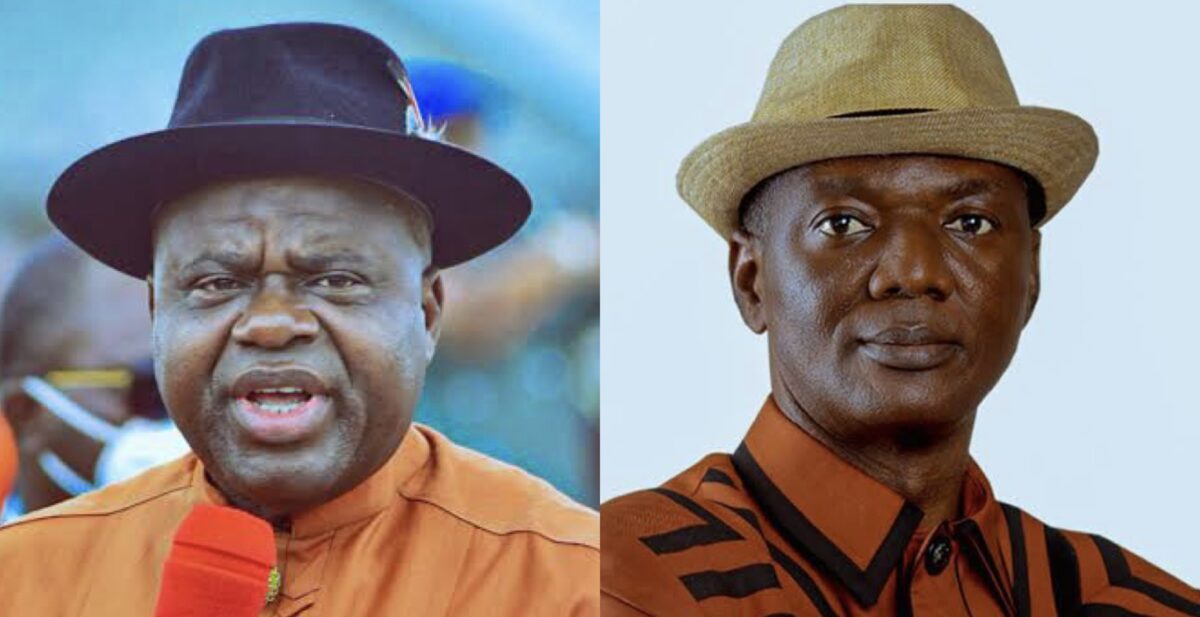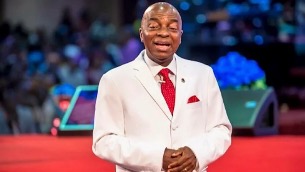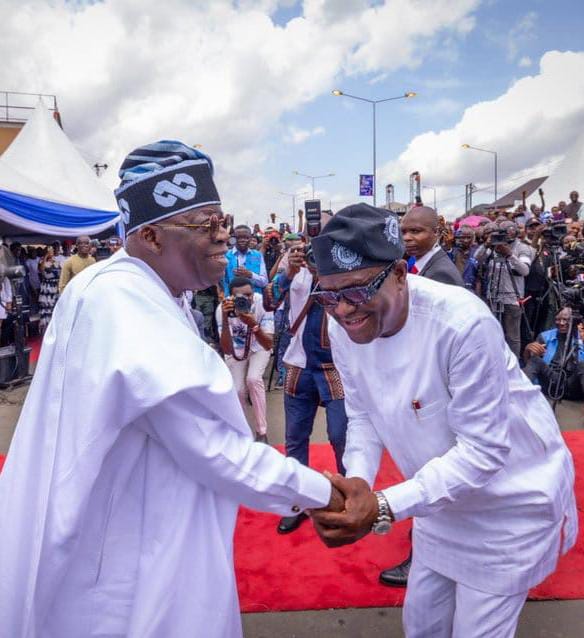Politics
US hurricanes followed by Republican storm of misinformation about relief efforts
Republican presidential nominee Donald Trump and supporters spread falsehoods about federal response and Democratic nominee Kamala Harris
Incessant rains and flooding battered Florida on Thursday after Hurricane Milton made landfall in the US as a Category 3 storm, leaving at least four dead and more than three million homes and businesses without power – two weeks after Hurricane Helene claimed more than 220 lives across six states, including Florida, North Carolina and Georgia.
Typically, US disaster relief is a bipartisan effort. But the back-to-back hurricanes have collided with this overheated election season, and Republican presidential candidate Donald Trump and his Make America Great Again allies have relentlessly criticised the federal response, propagating bizarre claims and unfounded conspiracy theories.
Trump has sought to leverage the grim situation to intensify his anti-immigration rhetoric while also labelling US President Joe Biden and Vice-President Kamala Harris – his Democratic rival for the White House – as “very irresponsive” to the crisis.
Do you have questions about the biggest topics and trends from around the world? Get the answers with SCMP Knowledge, our new platform of curated content with explainers, FAQs, analyses and infographics brought to you by our award-winning team.
“They have no money. You know where they gave the money? To illegal immigrants coming in,” Trump repeated during a rally in Pennsylvania on Wednesday, implying that the administration was spending disaster relief funds of the Federal Emergency Management Agency on immigrants.
The misinformation was so pervasive that Biden condemned Trump on Wednesday for his “reckless, irresponsible, relentless promotion of disinformation and outright lies that are disturbing people”.
“It’s ridiculous, and it’s got to stop,” Biden warned.
But it’s not just Trump. US Representative Marjorie Taylor Greene, a Republican from Georgia known for spreading conspiracy theories, last week told her 1.2 million followers on X that the government “can control the weather”.
“It’s ridiculous for anyone to lie and say it can’t be done,” Greene, a staunch Trump supporter, added.
Even Republican officials in the affected areas have pushed back against the misinformation.
On September 30, Trump visited the swing state of Georgia, claiming that Brian Kemp, its Republican governor, had not been able to reach a “sleeping” Biden.
Kemp dismissed the allegation, saying he had spoken with the president the previous day and that Biden had offered whatever assistance Georgia might need.
And Greene was corrected by a colleague, US Representative Carlos Gimenez, a Republican from Florida, who said on Wednesday that she should get her “head examined”.
“Humans cannot create or control hurricanes,” Gimenez posted on X, as Hurricane Milton approached his state.

Republican presidential nominee Donald Trump with Georgia Governor Brian Kemp at a temporary relief shelter in Evans, Georgia, on October 4. Photo: AP
Several US media organisations fact-checked Trump’s allegations, finding no truth to them and noting that, in fact, it was the former president who tried to use Federal Emergency Management Agency (FEMA) disaster funds in 2019 to pay for immigration programmes – in his case, detaining and transporting undocumented immigrants on the southern border.
According to CoreLogic, a data analysis consultancy, Hurricane Helene resulted in an estimated total loss of US$30.5 billion to US$47.5 billion; the losses from Hurricane Milton are still being assessed.
The disinformation has become so widespread that FEMA set up a response page on its website to debunk the lies, stating, for example, that it has “enough money right now for immediate response and recovery needs”.
No matter. In Michigan last week, Trump accused the Democrats of “stealing” money for “their illegal immigrants who they want to have vote for them”.
The billionaire Elon Musk, who is backing Trump and has campaigned with him, has used his social media platform X to amplify the disinformation.
“And FEMA used up its budget ferrying illegals into the country instead of saving American lives. Treason,” he wrote on his account, which has 201 million followers, without providing any evidence.
He also shared a post that claimed FEMA was blocking victims of Helene from receiving payments in Republican areas.
Harris has countered Trump’s claims, positioning herself as a reliable leader in a crisis, in contrast to his tumultuous approach.
“There’s a lot of mis- and disinformation being pushed out there by the former president about what is available, in particular, to the survivors of Helene,” Harris said. on Monday, condemning Trump as “extraordinarily irresponsible”.
Over the past week, Harris has met with disaster victims, attended high-level briefings and connected with local officials in the affected areas.
However, Florida Governor Ron DeSantis, a Republican who endorsed Trump following his brief presidential campaign earlier this year, said he had declined to take Harris’ calls.
“I’ve had storms under both President Trump and President Biden, and I’ve worked well with both of them,” he said, adding “she’s the first one who’s trying to politicise the storm, and she’s doing that just because of her campaign”.
The Harris campaign has also used the opportunity to highlight Trump’s climate denial, mocking him for calling climate change “one of the great scams of all time” in the aftermath of Hurricane Helene.

A woman walks past a large oak tree that fell at her apartment complex in Sanford, Florida, due to Hurricane Milton. Photo: AP
Trump has often called climate change a “hoax” and favoured ramping up oil and gas production.
In 2017, he pulled the US out of the Paris climate agreement, reached by over 200 countries two decades earlier to set targets to reduce greenhouse gas emissions. Biden rejoined the accord in 2021.
Project 2025, a 900-page policy paper assembled by the conservative Heritage Foundation to guide the next Republican administration, proposes radical changes to federal disaster preparedness agencies.
The document contends that the National Oceanic and Atmospheric Administration, which oversees the government’s weather and research operations, should be “broken up and downsized” – claiming that the agency “is harmful to US prosperity” because it has “become one of the main drivers of the climate change alarm industry”.
It also seeks to overhaul FEMA, shifting the majority of emergency responsibilities to state and local governments.

Democratic presidential nominee Kamala Harris (centre) walks with members of the US Armed Forces and North Carolina Governor Roy Cooper (left) after being briefed on Hurricane Helene recovery operations at the Charlotte Air National Guard Base on Saturday. Photo: Getty Images via AFP
Harris, who does not dispute the reality of climate change, released a campaign paper promising to “unite Americans to tackle the climate crisis”.
Other than disrupting voting preparations in the southern states of Georgia, North Carolina and Florida, the effect that the two natural disasters may have on the election, now four weeks away, is not clear.
A Gallup survey published on Wednesday found that just 21 per cent of voters identified climate change as a top priority, while immigration was among the top five issues cited as “extremely important” by 41 per cent of the respondents.
More Articles from SCMP
China’s stimulus measures just first step on economic reform journey
China moves to elevate and protect its private sector with new draft law
2 undercover Hong Kong security guards fired after Mannings shopper manhandled
‘Milestone’ for China’s gas turbine technology as it closes gap with the West
This article originally appeared on the South China Morning Post (www.scmp.com), the leading news media reporting on China and Asia.
Politics
Breaking: Diri Orders Autopsy on Bayelsa Deputy Governor’s Death, Warns Against Politicisation

Bayelsa State Governor, Senator Douye Diri, has ordered an autopsy to determine the cause of death of the state’s Deputy Governor, Lawrence Ewhrudjakpo.
Governor Diri gave the directive on Saturday while receiving former President Goodluck Jonathan at the Government House in Yenagoa.
Reacting to the incident, the governor condemned what he described as widespread misinformation and speculation on social media, warning against any attempt to politicise the deputy governor’s death.
“I want to make an appeal. I have seen people politicise his death. In Ijaw land, there is no enmity in death. Let nobody politicise the passing of our dearly beloved deputy governor,” Diri said.
“If anyone truly loves him, this is the time to show it. I have directed that an autopsy be carried out to reveal the cause of his death. There is a lot of nonsense going on on social media.”
The governor further urged the public to focus on mourning and honouring the late deputy governor, noting that the state government had declared three working days of mourning in his honour.
“If anyone is issuing statements to eulogise him, let it end there. Let us mourn him because Bayelsa State is in a mourning mood,” he added.
Governor Diri also called for unity and love among the people, reminding them of the inevitability of death.
Speaking during the condolence visit, former President Goodluck Jonathan described the late Ewhrudjakpo as a committed and dedicated individual who played a key role in the activities of his foundation.
“For me, he was someone my foundation and I will never forget. He represented the governor in all our programs,” Jonathan said, adding that Ewhrudjakpo worked tirelessly in that role, even more than when he served as deputy governor.
Politics
N1.4 Trillion not enough to get me into politics – Bishop Oyedepo reveals

The founder of Living Faith Church, Bishop David Oyedepo, has said he will never take part in partisan politics, not for even billions of naira.
He stated that no amount of money, including “$1 billion,” (1.4 Trillion naira) would make him join politics.
Oyedepo made this known during an impartation service at Shiloh 2025 held at the church’s headquarters in Canaanland, Ota, Ogun State.
He explained that partisan politics is not part of his life’s calling and that is why he has chosen to stay away from it.
In his words: “In 2015, I warned the church that trouble was coming. Didn’t trouble come?
“Partisan politics is off my calling. If you give me $1 billion to join politics, I won’t, because it is off my course.”
The bishop also said the world is in urgent need of God’s intervention because of the times we are living in.
According to him, believers are being trained as an end-time army to bring solutions to national and global problems, similar to what biblical figures like Joseph and Daniel did.
EVENTS
Wike at 58: “You’re a Shinning Star in my Cabinet, Tinubu hails Wike.

President Bola Tinubu congratulates Chief Nyesom Wike, Minister of the Federal Capital Territory (FCT), on his birthday, December 13.
President Tinubu celebrates with the Minister and former governor of Rivers State, giving thanks to God Almighty for enriching him with a life defined by purpose, service, and courage.
The President describes Chief Wike as an audacious top performer who defies obstacles and delivers results.
President Tinubu acknowledges the ongoing transformation of the Federal Capital Territory through infrastructure expansion, highlighting the Minister’s recent intervention that broke the 14-year logjam in the construction of the Apo-Karshi road.
The President commends Chief Wike for his resilience, can-do attitude, and commitment to excellence in all assignments.
President Tinubu thanks the Minister for his consistent efforts in delivering results and wishes him a happy birthday and strength to further his good work in the FCT.
“Nyesom Wike has been one of the shining stars in the cabinet, an exceptional performer, developing infrastructure in the Federal capital as never seen before and proving that his moniker as ‘Mr Project’ is not limited to his home state of Rivers.
“I commend him for being one of the champions of our Renewed Hope Agenda, even though he belongs to another party and wish him well as he marks another year in his life journey”.
Bayo Onanuga
Special Adviser to the President
(Information and Strategy)
December 13, 2025
-
Business1 year ago
US court acquits Air Peace boss, slams Mayfield $4000 fine
-

 Trending1 year ago
Trending1 year agoNYA demands release of ‘abducted’ Imo chairman, preaches good governance
-

 Politics1 year ago
Politics1 year agoMexico’s new president causes concern just weeks before the US elections
-

 Politics1 year ago
Politics1 year agoPutin invites 20 world leaders
-

 Politics1 year ago
Politics1 year agoRussia bans imports of agro-products from Kazakhstan after refusal to join BRICS
-
Entertainment1 year ago
Bobrisky falls ill in police custody, rushed to hospital
-
Entertainment1 year ago
Bobrisky transferred from Immigration to FCID, spends night behind bars
-
Education1 year ago
GOVERNOR FUBARA APPOINTS COUNCIL MEMBERS FOR KEN SARO-WIWA POLYTECHNIC BORI













